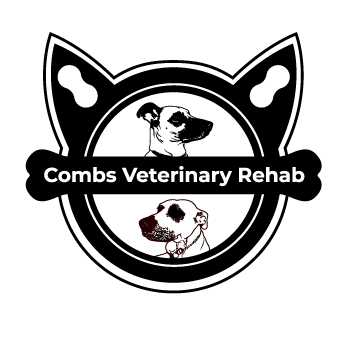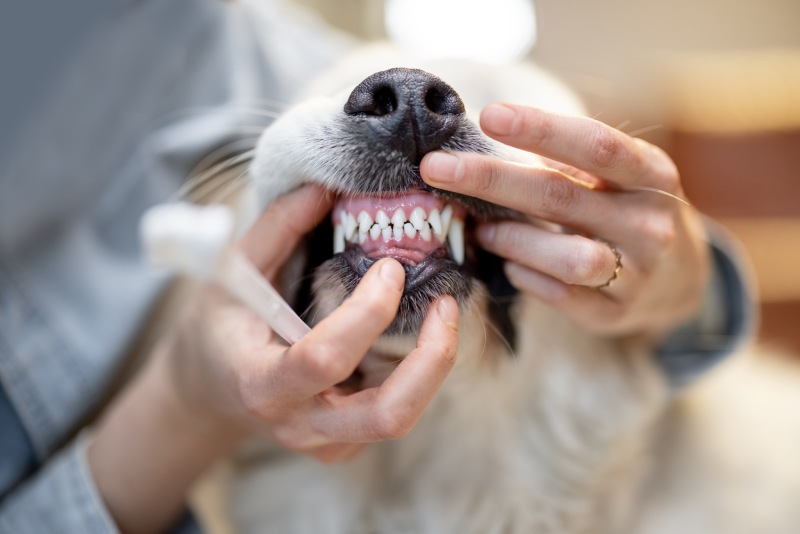Just like humans, pets need regular dental care to maintain good oral health. Unfortunately, dental disease is the most common chronic health problem affecting cats and dogs. Left untreated, it can lead to pain, tooth loss, and even serious health complications affecting the heart, liver, and kidneys.
Spotting Signs of Pet Dental Problems
Many pet owners underestimate the importance of dental health, often overlooking the early signs of trouble. However, dental problems in pets can be quite common. Here are some key signs to watch out for:
- Bad Breath: While occasional bad breath is normal, persistent foul odor emanating from your pet’s mouth can indicate dental disease.
- Difficulty Eating: If your pet seems reluctant to eat, avoids hard kibble, or drops food while chewing, it may be experiencing pain or discomfort in their mouth.
- Pawing at the Mouth: Excessive pawing or rubbing at the face and mouth can be a sign of pain or irritation caused by dental problems.
- Red or Swollen Gums: Healthy gums should be pink and firm. Red, inflamed, or bleeding gums are a clear indication of dental disease.
- Loose Teeth: Loose or missing teeth are a serious sign of advanced dental disease and require immediate veterinary attention.
If you notice any of these signs in your pet, it’s crucial to schedule a veterinary check-up with your veterinarian in New Baltimore. Early detection and intervention are key to preventing more serious dental problems down the line.
At-Home Dental Care
Brushing your pet’s teeth regularly is one of the most effective ways to prevent dental disease at home. While it may take some patience and training to get your pet accustomed to this routine, the benefits are well worth the effort:
- Reduces Plaque and Tartar Buildup: Just like humans, pets experience plaque buildup on their teeth. Brushing helps remove plaque before it hardens into tartar, which is much more difficult to remove and can lead to gum disease.
- Freshens Breath: Regular brushing combats the bacteria that cause bad breath, leaving your pet’s mouth smelling minty fresh.
- Promotes Overall Oral Health: Brushing not only cleans teeth but also massages the gums, which improves circulation and promotes overall oral health.
Here are some helpful tips for introducing teeth brushing to your pet:
- Start Early: Introduce teeth brushing to your pet when they are young, making it a more natural part of their routine.
- Use Pet-Safe Products: Never use human toothpaste on your pet, as it contains ingredients that can be harmful if swallowed. Opt for pet-specific toothpaste with a flavor your pet enjoys, like poultry or malt.
- Choose the Right Tools: Use a soft-bristled pet toothbrush that is comfortable for your pet’s mouth size.
- Focus on Technique: Focus on gently brushing the outer surfaces of the teeth, especially along the gum line.
- Keep it Positive: Reward your pet with praise and treats after each successful brushing session.
Remember, consistency is key! Start with short brushing sessions and gradually increase the duration as your pet becomes more comfortable.
Dental Chews and Treats for Pets in New Baltimore
While brushing is ideal, it’s not always possible to brush your pet’s teeth every day. Dental chews and treats can offer a valuable supplementary approach to maintaining good oral hygiene:
- Mechanical Cleaning: Dental chews provide a textured surface that helps remove plaque and tartar buildup through chewing action.
- Mental Stimulation: Dental chews also offer mental stimulation and can help satisfy your pet’s natural chewing instinct.
Here are some pointers for selecting safe and effective dental chews for your pet:
- Choose the Right Size and Texture: Select dental chews that are appropriate for your pet’s size and chewing habits. Too hard a chew can damage teeth, while too soft may not be effective in cleaning.
- Look for the VOHC Seal: The Veterinary Oral Health Council (VOHC) tests dental chews for their effectiveness in reducing plaque and tartar buildup. Look for the VOHC seal of approval when choosing dental chews for your pet.
- Supervision is Key: Always supervise your pet when they are chewing on a dental treat to prevent choking or swallowing large pieces.
Remember: Dental chews and treats should not be a substitute for regular brushing, but rather a complementary tool in your pet’
Keeping Your Pet’s Smile Healthy
By incorporating a combination of at-home dental care routines and regular professional cleanings at Dr. Fitz’s Bayside Animal Clinic, you can ensure your pet maintains a sparkling smile and optimal oral health. Our veterinary team serves New Baltimore, Clay Township, Anchorville, Fair Haven, Anchor Bay Harbor, Harrison Township, Mt. Clemens, and Parsons Island is passionate about providing comprehensive pet care, including dental services.
Schedule an appointment today for a dental checkup and consult with our experienced veterinarians on the best approach to keeping your pet’s teeth healthy and wagging their tail with confidence.



